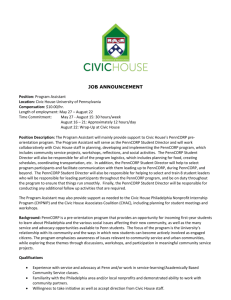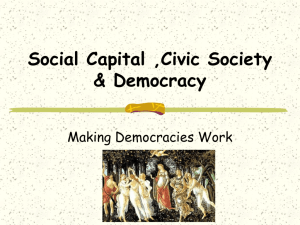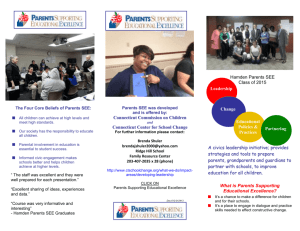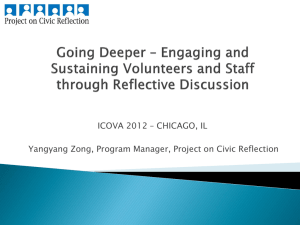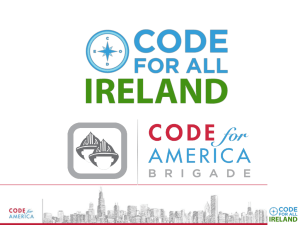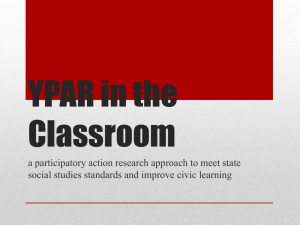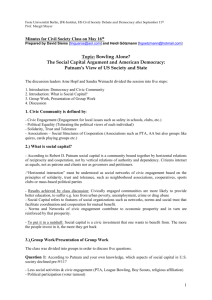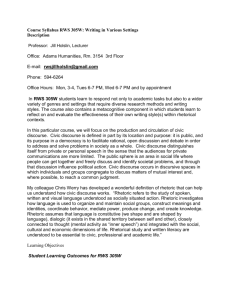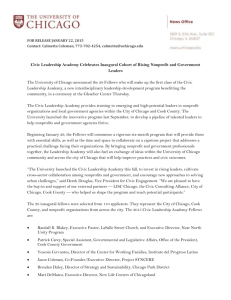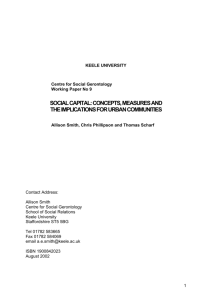COMM 4300 Senior Seminar in Rhetoric and Civic Community
advertisement
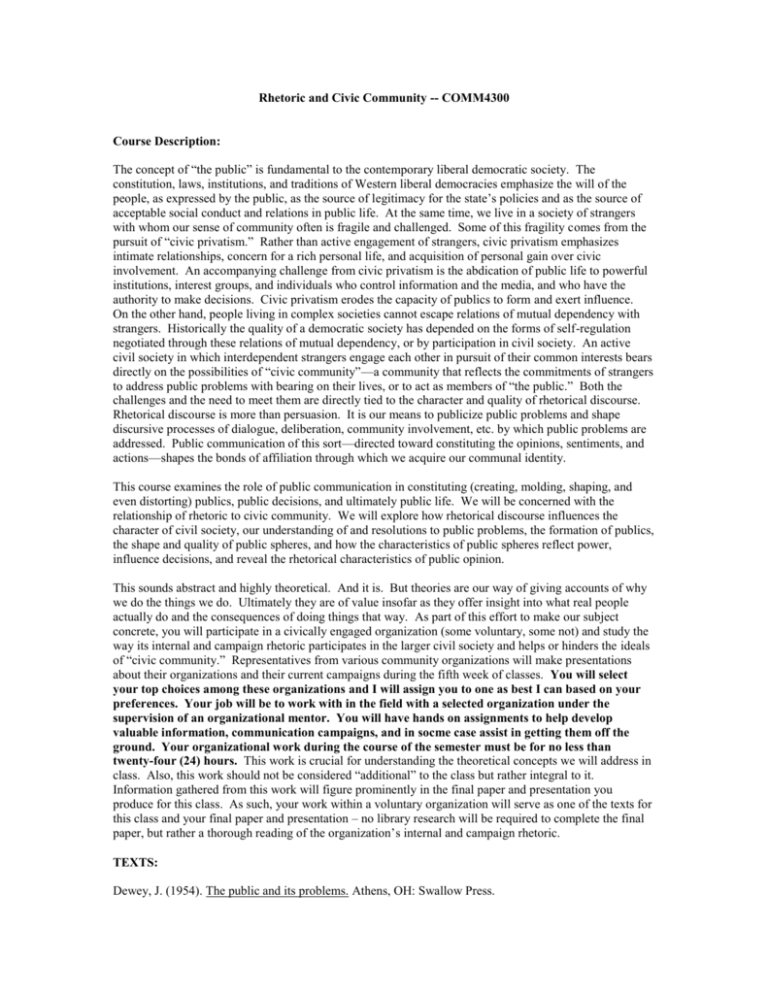
Rhetoric and Civic Community -- COMM4300 Course Description: The concept of “the public” is fundamental to the contemporary liberal democratic society. The constitution, laws, institutions, and traditions of Western liberal democracies emphasize the will of the people, as expressed by the public, as the source of legitimacy for the state’s policies and as the source of acceptable social conduct and relations in public life. At the same time, we live in a society of strangers with whom our sense of community often is fragile and challenged. Some of this fragility comes from the pursuit of “civic privatism.” Rather than active engagement of strangers, civic privatism emphasizes intimate relationships, concern for a rich personal life, and acquisition of personal gain over civic involvement. An accompanying challenge from civic privatism is the abdication of public life to powerful institutions, interest groups, and individuals who control information and the media, and who have the authority to make decisions. Civic privatism erodes the capacity of publics to form and exert influence. On the other hand, people living in complex societies cannot escape relations of mutual dependency with strangers. Historically the quality of a democratic society has depended on the forms of self-regulation negotiated through these relations of mutual dependency, or by participation in civil society. An active civil society in which interdependent strangers engage each other in pursuit of their common interests bears directly on the possibilities of “civic community”—a community that reflects the commitments of strangers to address public problems with bearing on their lives, or to act as members of “the public.” Both the challenges and the need to meet them are directly tied to the character and quality of rhetorical discourse. Rhetorical discourse is more than persuasion. It is our means to publicize public problems and shape discursive processes of dialogue, deliberation, community involvement, etc. by which public problems are addressed. Public communication of this sort—directed toward constituting the opinions, sentiments, and actions—shapes the bonds of affiliation through which we acquire our communal identity. This course examines the role of public communication in constituting (creating, molding, shaping, and even distorting) publics, public decisions, and ultimately public life. We will be concerned with the relationship of rhetoric to civic community. We will explore how rhetorical discourse influences the character of civil society, our understanding of and resolutions to public problems, the formation of publics, the shape and quality of public spheres, and how the characteristics of public spheres reflect power, influence decisions, and reveal the rhetorical characteristics of public opinion. This sounds abstract and highly theoretical. And it is. But theories are our way of giving accounts of why we do the things we do. Ultimately they are of value insofar as they offer insight into what real people actually do and the consequences of doing things that way. As part of this effort to make our subject concrete, you will participate in a civically engaged organization (some voluntary, some not) and study the way its internal and campaign rhetoric participates in the larger civil society and helps or hinders the ideals of “civic community.” Representatives from various community organizations will make presentations about their organizations and their current campaigns during the fifth week of classes. You will select your top choices among these organizations and I will assign you to one as best I can based on your preferences. Your job will be to work with in the field with a selected organization under the supervision of an organizational mentor. You will have hands on assignments to help develop valuable information, communication campaigns, and in socme case assist in getting them off the ground. Your organizational work during the course of the semester must be for no less than twenty-four (24) hours. This work is crucial for understanding the theoretical concepts we will address in class. Also, this work should not be considered “additional” to the class but rather integral to it. Information gathered from this work will figure prominently in the final paper and presentation you produce for this class. As such, your work within a voluntary organization will serve as one of the texts for this class and your final paper and presentation – no library research will be required to complete the final paper, but rather a thorough reading of the organization’s internal and campaign rhetoric. TEXTS: Dewey, J. (1954). The public and its problems. Athens, OH: Swallow Press. Evans, S.M. & Boyte, H.C. (1992). Free spaces: The sources of democratic change in America. Chicago: University of Chicago Press. Gusfield, J.R. (1981). The culture of public problems: Drinking-driving and the symbolic order. Chicago: University of Chicago Press. Sennett, R. (1976). The fall of public man. New York: W.W. Norton. Sophocles. Antigone. New York: Oxford University Press. Three readings available on the web: Putnam 1995 (through Chinook) at http://muse.jhu.edu/journals/journal_of_democracy/v006/6.1putnam.html (go to ejournals and type in <journal of democracy>, select v.6, no 1, scroll down to Putnam’s article. Madison # 10 at http://memory.loc.gov/const/fed/fed_10.html Putnam 2002 (through Chinook) at http://www.prospect.org/print/V13/3/putnam-r.html (“Bowling Together”) (or Google <Putnam Bowling Together>)


